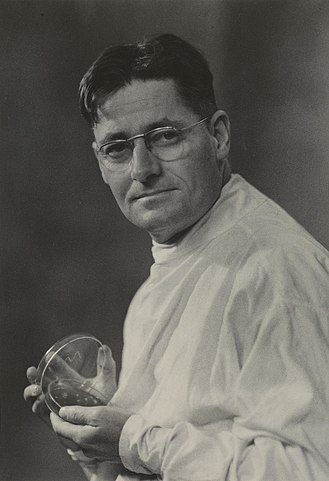Why was Howard Walter Florey Awarded the Nobel Prize for Physiology or Medicine in 1945?
Howard Walter Florey: Nobel Laureate for Unleashing the Power of Penicillin (1945)
Howard Walter Florey, an Australian pharmacologist and pathologist, played a transformative role in the development and mass production of penicillin, one of the most crucial medical discoveries of the 20th century. Renowned for his pioneering research on antibiotics, Florey’s work revolutionized medicine and saved countless lives. In recognition of his exceptional contributions, he was awarded the Nobel Prize for Physiology or Medicine in 1945. This article explores the reasons behind Florey’s prestigious honor and highlights his remarkable scientific achievements.

Harnessing the Potential of Penicillin:
Howard Walter Florey’s Nobel Prize was primarily awarded for his leadership in harnessing the therapeutic potential of penicillin, the remarkable antibiotic initially discovered by Alexander Fleming in 1928. Florey, along with Ernst Boris Chain and a dedicated team of researchers at the University of Oxford, worked diligently to develop a method for the large-scale production and purification of penicillin.
Florey recognized the groundbreaking potential of penicillin as an effective treatment for bacterial infections. During World War II, when infectious diseases and wounds were major causes of morbidity and mortality among soldiers, the need for an effective antibiotic was dire. Florey’s research and leadership were pivotal in transforming penicillin from a promising discovery into a widely available and life-saving drug.
Mass Production of Penicillin:
Florey’s team was confronted with numerous challenges in their mission to mass-produce penicillin. They had to develop efficient methods for extracting and purifying the antibiotic from mold cultures, as well as optimize fermentation techniques for large-scale production.
The team’s innovative approach led to the development of advanced techniques that significantly increased the yield of penicillin, enabling its widespread medical use. By 1944, penicillin was being produced on an industrial scale, transforming the treatment of bacterial infections and drastically improving patient outcomes.
Impact on Medicine:
Howard Walter Florey’s groundbreaking work on penicillin had a profound and lasting impact on the field of medicine. Penicillin marked the beginning of the antibiotic era, revolutionizing the treatment of bacterial infections and saving countless lives worldwide.
Before penicillin, bacterial infections like pneumonia, sepsis, and wound infections posed severe threats to human health, with limited effective treatments available. The widespread availability of penicillin drastically reduced mortality rates and improved the prognosis for infectious diseases.
Pioneering Antibiotics and Modern Medicine:
Florey’s contributions extended beyond penicillin. His research laid the foundation for the development of other antibiotics, such as streptomycin and erythromycin, which further expanded the medical arsenal against bacterial diseases.
The age of antibiotics that Florey helped pioneer transformed medical practice. Antibiotics are now indispensable in treating various bacterial infections, safeguarding patients undergoing surgery, and managing chronic conditions. The impact of antibiotics in modern medicine cannot be overstated, and Florey’s work remains a cornerstone of this revolution.
Recognition and Legacy:
Howard Walter Florey’s Nobel Prize in 1945 celebrated his exceptional scientific achievements and the transformative impact of his research on antibiotics. His leadership and determination in making penicillin available for medical use have had an immeasurable impact on global health.
Florey’s legacy continues to inspire ongoing research in the field of antibiotics, particularly in addressing the challenge of antibiotic resistance. His work serves as a testament to the power of scientific innovation and collaboration in saving lives and improving human health.
Howard Walter Florey’s Nobel Prize in 1945 honored his pioneering contributions to the field of medicine and his pivotal role in the development and mass production of penicillin. His visionary leadership and dedication to harnessing the potential of antibiotics transformed the treatment of infectious diseases and revolutionized modern medicine.
Florey’s legacy continues to shape the field of medicine, guiding ongoing efforts to develop new antibiotics and address the global challenge of antibiotic resistance. His work remains an enduring example of the transformative power of scientific inquiry in improving human health and well-being on a global scale.




